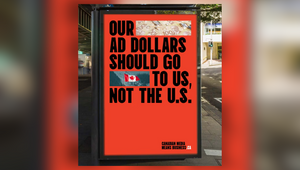
How Should Brands Navigate German Politics as the Far Right Rises?

[Photo by Norbert Braun on Unsplash]
Germany has seen numerous protests gaining national and global attention in recent months, from farmers to oppositions of the far-right. The political scene in Germany means that the Alternative for Deutschland (AfD) party is gaining strength, even winning an election for mayor in a German town back in December 2023.
Hailing the UK’s Brexit as the new ‘model for Germany’ the party is causing concern with its German nationalist policies, some of which include an anti-immigration and anti-green stance, as well as their meetings with neo-Nazis and proposals for a mass deportation of German citizens.
The AfD’s growing popularity means that it now polls at above 20% in Germany and is on track to win three state elections in the east of the country this year. It seems that during times of crisis, as British-German historian Katja Hoyer has mentioned, Germans tend to sway away from mainstream politics and towards sharper views.
As growing far-right popularity weaves into daily discourse, conversations will inevitably influence marketing and brand communications from brands. And navigating the uncertainty, people look to support brands which align with their own values.
DDB Germany’s CEO Bjoern Bremer explains the difficulties of tackling the topic. “It is a minefield, and we recommend most brands to stay out of politics. Having said this, we love to communicate the DE&I support from our clients.”
He continues, “In Germany, those are two different topics. There are politics, politicians, parties etc., and then there is having a point of view on things going on – e.g. same-sex marriage, antisemitism, gender equality or racism. Although there’s always the danger of green- or rainbow-washing, some brands are happy to go out and promote their position. 9 out of 10, I reckon, are happy to stay out of the conversation.”
Jan-Philipp Jahn, the CEO of McCann Germany says, “Our industry in Germany is very committed to countering the political shift to the right. Last week, the Association of German Advertising Agencies (GWA), just like the Art Directors Club Germany and the newly founded, cross-agency initiative Creative Social Responsibility (C_SR), published a call to turn lofty words into action ASAP - to commit themselves as agencies, but also as private individuals, to the fight against the right in order to protect and preserve democracy in this country.”
“We at McCann Worldgroup Germany also officially support all three initiatives,” Jan-Phillip goes on to say. “And the CEOs of large advertising companies, in some cases even the companies themselves, are publicly speaking out in favour of taking a stand against the right. Initially sparse and hesitant, this has now become a real movement, which makes us and me personally very happy!”
C_SR’s founder and co-CEO of antoni, Sven Doerrenbaecher says, “Brands and agencies have so far been reluctant to take a stance in political discourse. However, as we slide into the far-right, we're no longer talking about a political issue, but a societal one. A big one! And here, corporate leaders must take a stand.”
He continues, “Some CEOs have clearly opposed extremist tendencies before millions of people took to the streets to demonstrate for freedom and democracy. Now, numerous initiatives are following suit, such as those by the GWA, ADC Germany, various alliances of media outlets, or private initiatives like C_SR.”
While everyone gathers to consider their reactive thoughts to the ongoings, Sven reminds us that this is not a short-term problem to fix, but something that’s going to take consistency to uphold. “The first wave will subside after everyone has now shown their logo on a poster for social coherence or talked in their social bubble about defending liberal values. That's good. But it's not enough.
“The creative industry should ask itself how to reach out to people who vote for right-wing populist parties,” says Sven as he encourages people to consider, “How to leave the bubble? How to convincingly persuade undecided voters to choose democratic-liberal parties? How to organise real action?”
Alongside allies within the industry, Sven founded the C_SR initiative, a non-profit organisation to support the German creative industry through this politically challenging period. For those who are unsure of how to tackle the events unfolding, he and other socially engaged creatives will work pro bono to take on briefs and champion both freedom and democracy in everything that they do.
Sven says, ”Help is provided where it is needed and can make an impact. Because dedicated NPOs know where the need is greatest. And more creative volunteering is needed as we are facing the greatest societal challenge since the Second World War.”
Jan-Phillipe also explains his approach. “If a client asks me how they should act at the moment, I would advise them to make sure internally that there are no right-wing forces at work in the company – otherwise, it can quickly look like bluewashing. But if the company management and the employees support the initiative 100%, I feel that this is the only true direction and I am happy to support it, both personally and professionally!”
For him, when it comes to a brand making a clear stance and statement on the topic through advertising, it has to come from a meaningful place. “Of course, such a campaign is particularly nice when the statement fits the brand, such as the German mobile phone provider Congstar, which uses ads to urge racists to cancel their contract because they don't want to have them anyway. This is bold and edgy and of course, has a great industry fit for a telco!”















